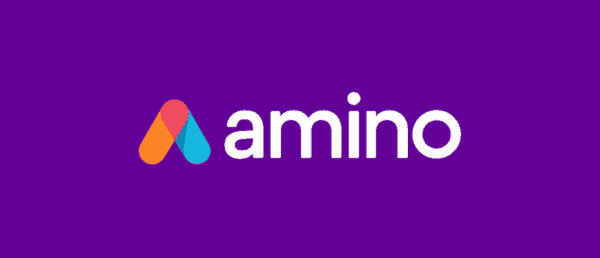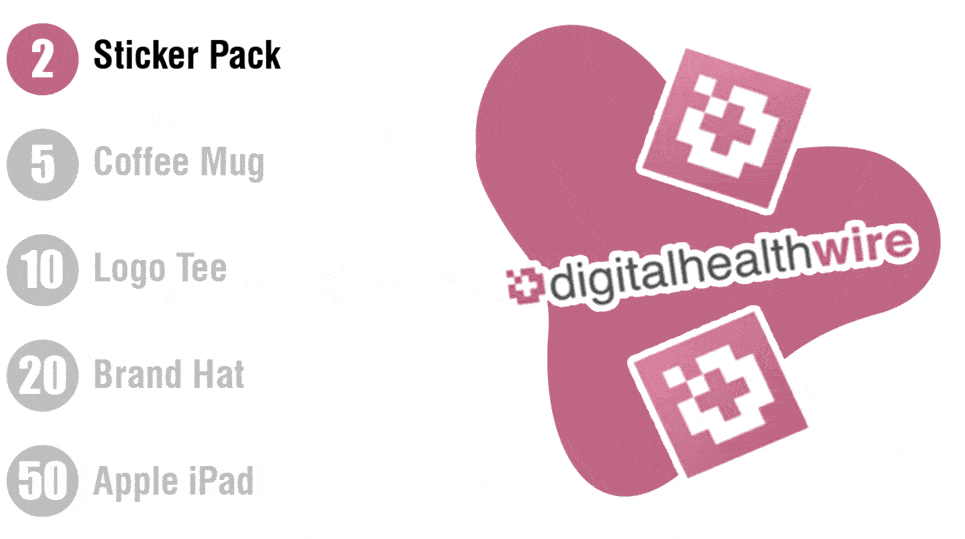|
Amino Benefits Funding | Meta Lawsuit
May 15, 2023
|
|
|

|
|
Together with
|

|
|
|
“The paradigm of how healthcare uses data is changing. The new model is about making information very liquid, very fast, and very useful – but the key word there is ‘information,’ not ‘data.’”
|
|
Arcadia CEO Michael Meucci
|
|

|
|
Health benefits navigation platform Amino Health just gave our lackluster Q2 funding totals a nice eight-figure lift after landing $80M in an even mix of equity and debt financing.
Amino got its start as a direct-to-consumer healthcare guidance product before recently evolving into an enterprise subscription model serving health plan members, third-party administrators, and benefits administrators.
- Amino’s platform offers customizable tools to guide its users toward efficient care, using over 200 clinical quality measures to assess the quality and necessity of various treatments for everything from migraines to surgery.
- The company says its D2C roots “battle tested” the platform’s user experience, and it now supports over 1.6M members with 97% customer retention – usage that’s generated 26 billion claims to date.
Within the last quarter, Amino added over 500k providers by including groups like nurse practitioners and physician assistants, and the new funding will accelerate further marketing and product development efforts.
- As the benefits market expands and grapples with new regulatory requirements and an explosion of data – particularly from the federal Transparency in Coverage Rule – startups providing navigation tools have had some positive tailwinds.
- The funding environment for these companies has held up better than the broader sector, with recent rounds including HealthJoy’s $60M Series D and Transcarent’s $200M Series C.
The Takeaway
Amino’s transition away from D2C gives the company a more capital-efficient model that allows its product to get sponsored by either the employers that are purchasing the benefits directly or the partners who are helping people find them. The large funding round gives Amino credit for the pivot, as well as $80M to help it execute on the new strategy.
|




|
|
Patient-Centered Design for Diabetes Care
Glooko’s recently overhauled Mobile App makes it easier than ever for diabetes patients to organize, log, visualize, and share their data. Head over to this conversation with Glooko’s product and design team for a behind-the-scenes look at how patient-centered design is improving diabetes outcomes.
|
|
4 Tips for Licensing Your Telehealth Providers
Telemedicine is the next frontier of care delivery, yet many providers continue to be hampered by the complex process of medical licensing. If you’re one of them, check out Medallion’s four tips for licensing your telehealth providers.
|
|
Successful RPM Through End-to-End Support
From needs assessments and program deployment to security enhancements and call center monitoring, Clear Arch Health offers fully customizable support services to help you get the most from your RPM solution.
|
|
- Meta Moves to Dismiss Lawsuit: Meta is filing to dismiss the highly public class action lawsuit that accused it of sharing medical data with advertisers via its Facebook Pixel tracking tool. The motion to dismiss the case places the blame entirely on the shoulders of the healthcare providers that installed the Pixel on their sites and opted to share patient information. Although Meta of course used the data to target advertisements, it’s claiming that there’s nothing unlawful about the Pixel itself, and any violation is due to providers sharing the info in the first place.
- Lagging Home Care Workforce: A Health Affairs study suggests that demand for in-home assistance with everyday tasks like bathing and mobility is quickly outpacing workforce supply as the population ages. Between 2013 and 2019, the number of home care workers per 100 Medicaid HCBS participants (the primary payor for long-term support services) declined by 11.6%. Estimates suggest steeper declines in 2020, leading the authors to conclude that improving access to in-home assistance requires not only expanded health coverage, but also new workforce investments.
- Emory Taps NeuroFlow: Georgia-based Emory Healthcare is teaming up with NeuroFlow to help its behavioral health providers track, assess, and connect with patients between visits. NeuroFlow’s care collaboration platform helps patients utilize healthy coping skills through self-directed content that updates care teams with frequent progress measures, which Emory will use to reach patients “where they are most likely to be identified as having a psychiatric problem, which is the primary care setting.”
- Updated Breast Screening Guidance: The United States Preventive Services Taskforce issued updated guidance for breast screening that lowers the recommended starting age for routine mammography from 50 to 40. The move reverses a 2009 USPSTF policy that set the starting age at 50, a decision that drew widespread blowback from women’s health advocates. USPSTF said the new change was based on research indicating that biennial screening from 40-74 would avert 1.3 additional breast cancer deaths per 1,000 women screened.
- Liability Premiums on the Rise: An AMA analysis found that the proportion of medical liability premiums that increased between 2021 and 2022 was 36.2%, marking the highest rate seen since 2005 and the fourth straight year of increases. Among the premiums that increased last year, the average hike was 8.1%, which the AMA says could cause physicians in states with difficult liability environments to relocate or even drop clinical services that raise their risk.
- MEDITECH Integrates Luma: Luma Health’s Patient Success Platform is now fully integrated with the MEDITECH Expanse EHR, enabling new capabilities like patient self-scheduling, conversational messaging, and operational / clinical forms. When an appointment is confirmed through a Luma communication, the information is instantly updated in the EHR to give providers an up-to-the-second view of their day, while also allowing Luma to send rules-based text, email, and voice reminders based on its new Luma Bedrock optimization.
- Healthcare Back to Top Concern: University of Michigan’s latest survey shows that consumer confidence slid 9% last month, the largest drop since June 2022, with any positive sentiment gained from easing inflation wiped out by April’s regional banking crisis. Unfortunately, less consumers worrying about the cost of eggs and gas also caused healthcare to reclaim the top spot as the country’s largest household financial concern.
- Belong.Life Launches Dave: Patient community startup Belong.Life unveiled “the world’s first conversational AI oncology mentor,” Dave, which leverages generative AI and data from patient-physician / patient-to-patient interactions aggregated from Belong’s app to help people navigate their cancer journeys. Dave is trained to think and respond to common patient questions like an oncologist, with Belong’s real-world data helping provide instantaneous information that’s both accurate and empathetic.
- HealthJoy + Teladoc: Benefits navigation startup HealthJoy is expanding its partnership with Teladoc to bring virtual primary care services to over 1k US employers. HealthJoy’s benefits platform includes integrated virtual services for chronic care management, dermatology, mental health, MSK therapy, and now primary care. Teladoc and HealthJoy originally began working together to provide virtual care options in 2022, with the recent expansion fully integrating Teladoc’s virtual primary care services into HealthJoy’s employer offerings.
- Analyst Capacity Bottleneck: Only 16% of healthcare organizations are successfully using data to define clinical best practices, according to a recent provider survey from MDClone. While nearly all respondents expect an increase in quality improvement projects over the next three years, analyst capacity looks like the biggest bottleneck to progress. Over 80% of provider orgs don’t have enough analyst resources to meet the growing demand for quality improvement projects, and only 36% expect to increase budget allocations during that time frame.
- Ucardia Enters Homes with Phas3 Acquisition: Virtual cardiac conditioning software company Ucardia announced its acquisition of home-based cardiac rehab company Phas3, creating a hybrid CVD care solution “covering all facets of cardiac rehabilitation, conditioning, and remote monitoring.” As part of the announcement, Ucardia launched its Ucardia-at-Home remote patient monitoring platform, which combines a smartphone app with monitoring devices and experienced clinicians to help patients and providers navigate cardiac rehab.
|
|
A Flexible Prescription for Nurses
connectRN was founded to give nurses “radical flexibility,” with schedules that are crafted around their lifestyles, priorities, and personal needs. Check out connectRN’s feature in Fast Company to see how the future of healthcare is being built together with nurses.
|
|
Selecting Your Drug Database and CDS Solution
Do your providers need easy access to real-time drug knowledge and clinical decision support? Explore Synapse Medicine’s complete guide to drug database advantages, use cases, challenges, and factors to consider when selecting the right solution for your organization.
|
|
Clinical Documentation Integrity For VBC
The growing use of risk-adjusted reimbursement in outpatient settings means clinical documentation needs to keep up, or health systems risk leaving revenue on the table. Check out Nuance’s new blog to learn how shifting reimbursement models make clinical documentation excellence more important than ever, and how AI can help you achieve it.
|
|
|
Share Digital Health Wire
|
|
Spread the news & help us grow ⚡
|
|
Refer colleagues with your unique link and earn rewards.
|

|
|
|
|
Or copy and share your custom referral link: *|SHAREURL|*
|
|
You currently have *|REFERRALS|* referrals.
|
|
|
|
|